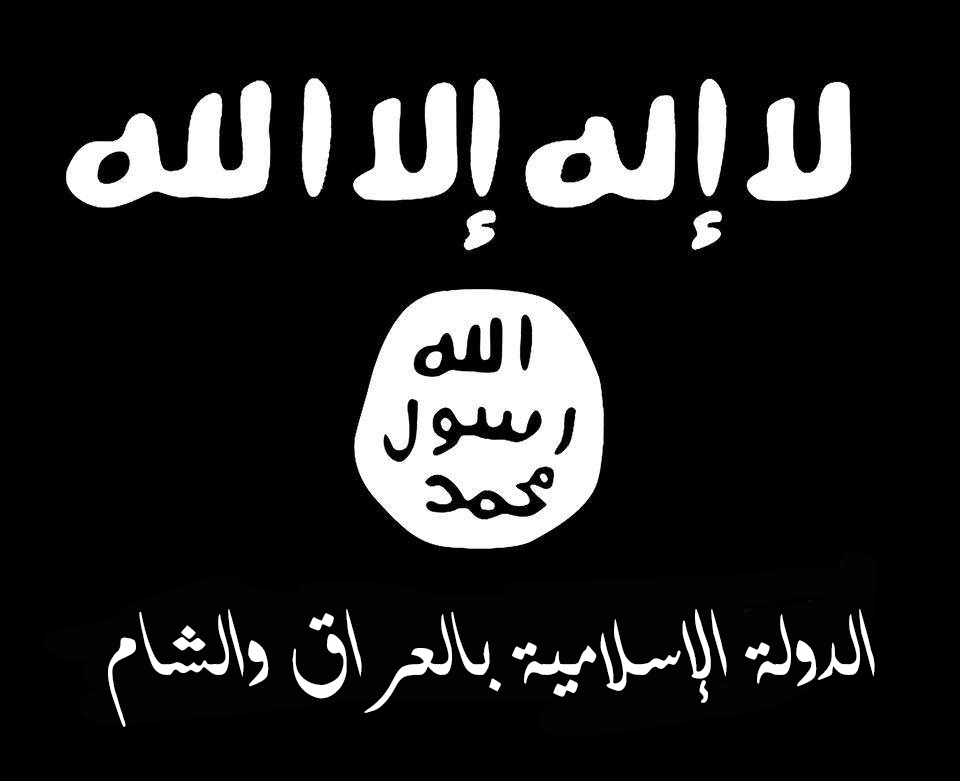
Islamic State of Iraq and al-Shām- “Recitation of Sūrat al-Ḥashr and al-Mumtaḥanah”
_________
To inquire about a translation for this recitation for a fee email: [email protected]
Category: Islamic State of Iraq and al-Shām
Musings of an Iraqi Brasenostril on Jihad: Comprehensive Reference Guide to Sunni Militant Groups in Iraq
NOTE: An archive of the Musings of an Iraqi Brasenostril on Jihad column can be found here.
–
Comprehensive Reference Guide to Sunni Militant Groups in Iraq
By Aymenn Jawad Al-Tamimi
As the overall Sunni insurgency has gained ground in Iraq, much discussion will naturally revolve around the question of which groups are the main actors in the insurgency. Here I will discuss those groups in-depth, and the relations between them.
Islamic State of Iraq and ash-Sham (ISIS)
Intro: An al-Qa’ida affiliate?
By far the most prominent group in terms of wider media attention, ISIS in Iraq is almost universally described as an “al-Qa’ida affiliate.” However, it should be emphasized that the evidence for this characterization can only be described as ambiguous at best, and in truth, points to ISIS not being al-Qa’ida’s branch in Iraq.
Now, it is true that one can find evidence that may suggest ISIS is an al-Qa’ida affiliate. Most notably, in his interview with al-Jazeera Arabic, Sheikh Abu Mohammed al-Jowlani of Jabhat al-Nusra- al-Qa’ida’s official Syrian affiliate- likened the existence of his group and that of ISIS to being members of “one house,” and that the issue of the disagreement over Sheikh Abu Bakr al-Baghdadi’s announcement of ISIS had been raised with “our amir and their amir: Aymenn al-Zawahiri, may God protect him.” There is no reason to doubt that Sheikh Jowlani sincerely believes ISIS is part of the same al-Qa’ida family.
However, ISIS originated as the Islamic State of Iraq (ISI): an umbrella group formed in October 2006 and composed of a number of insurgent groups, whose main component was probably the original al-Qa’ida in Iraq (AQI) organization, but this AQI component was quickly absorbed into ISI. When new members joined ISI, the pledge of allegiance- bay’ah– was given to the commander of ISI, not necessarily requiring one to al-Qa’ida central’s leadership as well.
Indeed, by 2007, Sheikh Zawahiri of al-Qa’ida central declared: “First, I want to clarify that there is nothing in Iraq now by the name of al-Qa’ida, but Tanzim al-Qa’ida fi Bilad al-Rafidayn joined- by Allah’s preference- other jihadi groups in the Islamic State of Iraq.” While it would seem that in his ruling last year for the dissolution of ISIS, Sheikh Zawahiri assumed that Sheikh Baghdadi would defer to his authority, likely on account of Sheikh Baghdadi’s apparent history as a leading member in AQI who would not have forgotten his bay’ah to the central organization (just like Sheikh Jowlani, who was an AQI and ISI veteran), Sheikh Baghdadi’s rejection of the ruling indicates the true break between ISIS and al-Qa’ida central.
On the ground, some ISIS mujahideen accept this break as reality, and thus members in Syria like the British mujahid Abu Qaa’qaa explicitly reject identification as al-Qa’ida. Others I know express ambivalence: thus one native Syrian member of ISIS in Ghouta, Damascus province, said to me that he had pledged bay’ah to Sheikh Baghdadi but did not know if in turn Sheikh Baghdadi had pledged allegiance to Sheikh Zawahiri.
Also of relevance here is how ISIS’ commander projects himself and how the group projects its goals. Although the amir of ISIS for Idlib province has denied that ISIS’ overall amir considers himself a caliph, it is hard not to draw that conclusion from the title assumed: “amir al-mu’mineen” (“commander of the believers”- a traditional title of caliphs) in addition to claimed descent from the family of the Prophet Mohammed (“al-Husseini”) and the tribe of the Prophet (“al-Quraishi”). In addition, more so than any other group, ISIS places particular emphasis on the imminent establishment of a Caliphate (e.g. with the slogan “the promised project of the Caliphate”), and images of the world under the iSIS banner regularly appear in pro-ISIS social media circles.

Figure 1: ISIS signboard from Azaz area: “The promised project of the Caliphate.”

Figure 2: The entire world under the ISIS banner.
It should be noted that these aspirations of Caliphate and world domination are not so openly projected by ISIS within Iraq, as I have outlined before. However, that does not mean ISIS in Iraq has abandoned these goals. It is simply a matter of trying to take advantage of growing Sunni Arab disillusionment with the government and portraying itself as the upholder of their interests.
Perhaps the most explicit distancing yet of al-Qa’ida central from ISIS on the part of a senior jihadi comes from Sheikh Abu Khalid al-Suri: a supposed Ahrar ash-Sham official and al-Qa’ida central member who was appointed by Sheikh Zawahiri to mediate between ISIS and Jabhat al-Nusra. In light of the ongoing fighting between ISIS and various rebel groups in Syria, Sheikh Abu Khalid released a statement condemning ISIS’ conduct and decrying ISIS’ “crimes” being committed “in the name of jihad and the establishment of an Islamic state, and being attributed to” figures like Sheikh Zawahiri and Sheikh Osama bin Laden [i.e. on account of media coverage calling ISIS an al-Qa’ida affiliate]. His statement added that these al-Qa’ida figures are “innocent of what is being attributed to them, just as the wolf was innocent of spilling the blood of Ibn Yaqub.” He concludes with a call for ISIS members to repent for their conduct.
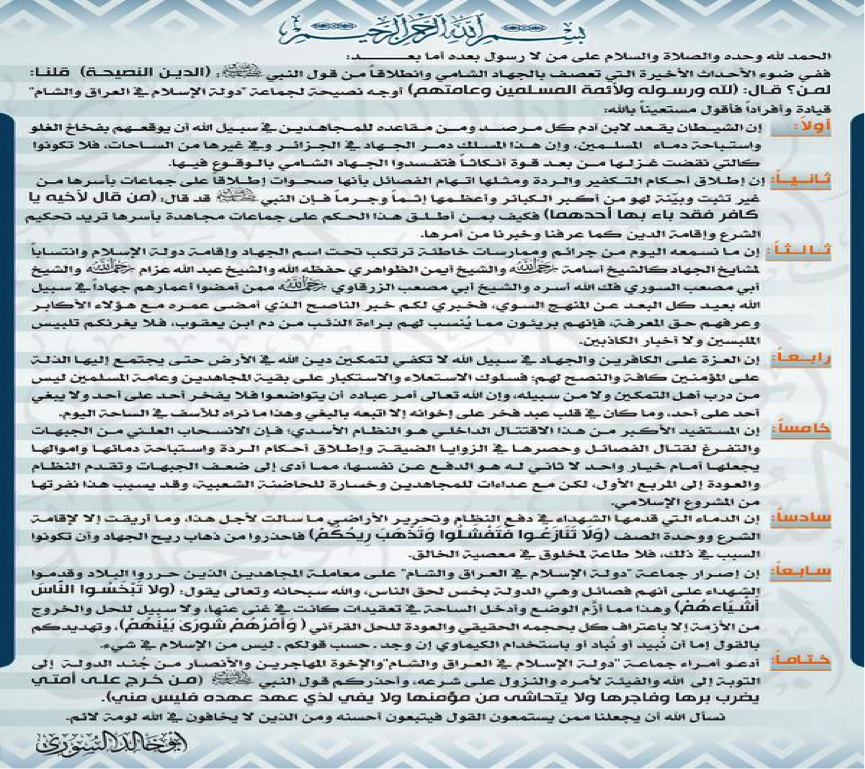
Figure 3: Statement from Sheikh Abu Khalid condemning ISIS.
Operations and Activities
Of all the militant groups in Iraq, ISIS stands out for having the most extensive financial resources (in large part deriving from the fact that in Mosul, from which the government ultimately failed to dislodge the group even during the surge, ISIS is the Mafia), manpower and range of operations, with the occasional ability to conduct attacks in the predominantly Shi’a areas of the soutb (e.g. Najaf, Karbala, Kut and Wasit). Similarly, coordinated bomb attacks in Baghdad can be reliably traced to ISIS: something other insurgent groups have so far proven themselves incapable of carrying out.
By province, ISIS is by far strongest in Anbar province, where the group operates clandestine training camps and has until this month maintained a rather shadowy existence, conducting some hard-hitting attacks over the past few months including a string of several suicide bomb attacks in a single day targeting local police in the town of Rawa.
Currently, the group remains in control of parts of Ramadi and Fallujah, following on from their entry with the withdrawal of the Iraqi army in the face of widespread Sunni anger at Maliki’s attempt to dismantle the Ramadi camp protest site. Some of the more recent operations in Anbar include firing mortar rounds at Sahwa leader Abu Risha’s estate and heavy fighting with security forces in a number of urban Anbar locations including Street 60 and al-Mal’ab quarter in Ramadi as well as the al-Khaldiya area near Fallujah.
To a limited extent, the group in Anbar has had a boost in manpower provided from eastern Syria, both with influx of muhajireen (as related on the testimony of Abu Qaa’qaa) and the fact that Jabhat al-Nusra’s leadership in the Deir az-Zor border town of Albukamal/Abu Kamal, along with Liwa al-Qadisiya al-Islamiya’s overall leader, entered into Iraq for much of 2013 to aid ISIS in the fight against government forces. The latter points were related to me by a Liwa al-Qadisiya al-Islamiya fighter, who also told me that his group like ISIS supports a Caliphate stretching first over Iraq and Bilad ash-Sham.
Outside of Anbar, the group has regularly conducted attacks on the Iraqi army in various districts of Mosul, has targeted the Shi’a Turkmen of Tuz Kharmuto with bomb attacks, and has various pinpoints of activity including the Baiji area of Salah ad-Din province, Jurf al-Sakhr in northern Babil province (just south of Baghdad), and the Tarmiya area of northern Baghdad province, where assaults have been regularly launched on “Sahwa” forces, culminating in a mass execution of 18 Sunnis suspected of being “Sahwa” in November.
Last year also saw the significant development of ISIS operations within Iraqi Kurdistan with the Arbil bombings in September, claimed by ISIS in retaliation for the Kurdistan Regional Government’s supposed support for the “PKK” in Syria. Indeed, ISIS in Syria has seen an infusion of some Iraqi Kurdish manpower that appears to be alternating back and forth between Syria and Iraq. In a major assault launched by ISIS on security forces in Kirkuk in early December, it emerged from ISIS sources that the leaders of the operation- all eventually killed- were Kurdish.
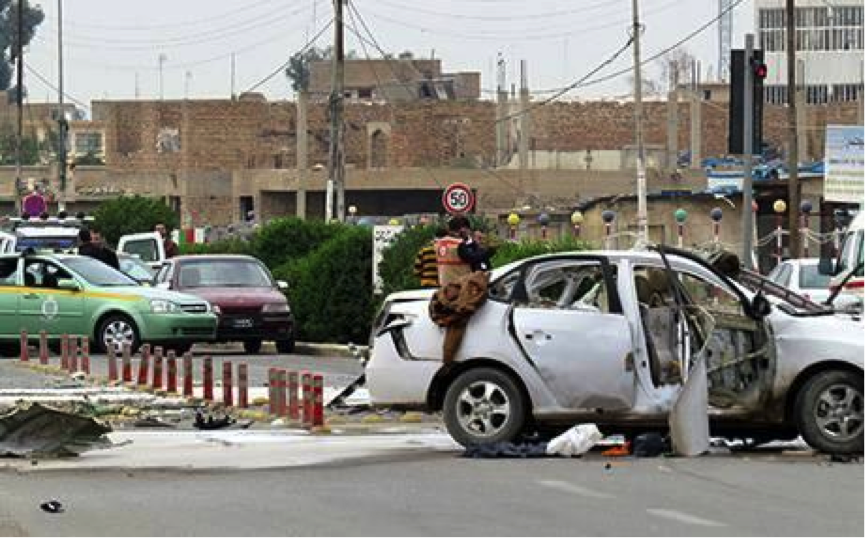
Figure 4: Aftermath of car bombing by ISIS in Kirkuk as part of assault operation on intelligence HQ in early December.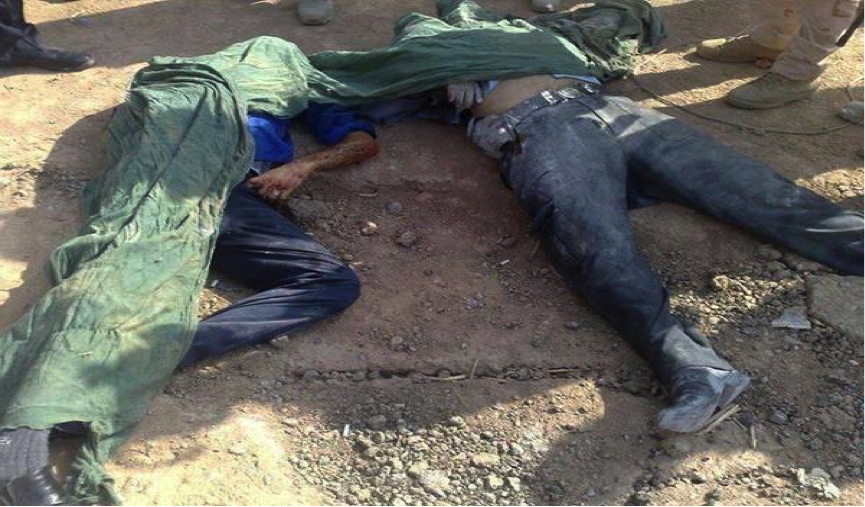
Figure 5: Two men from local security forces slain by ISIS in the Kirkuk assault.
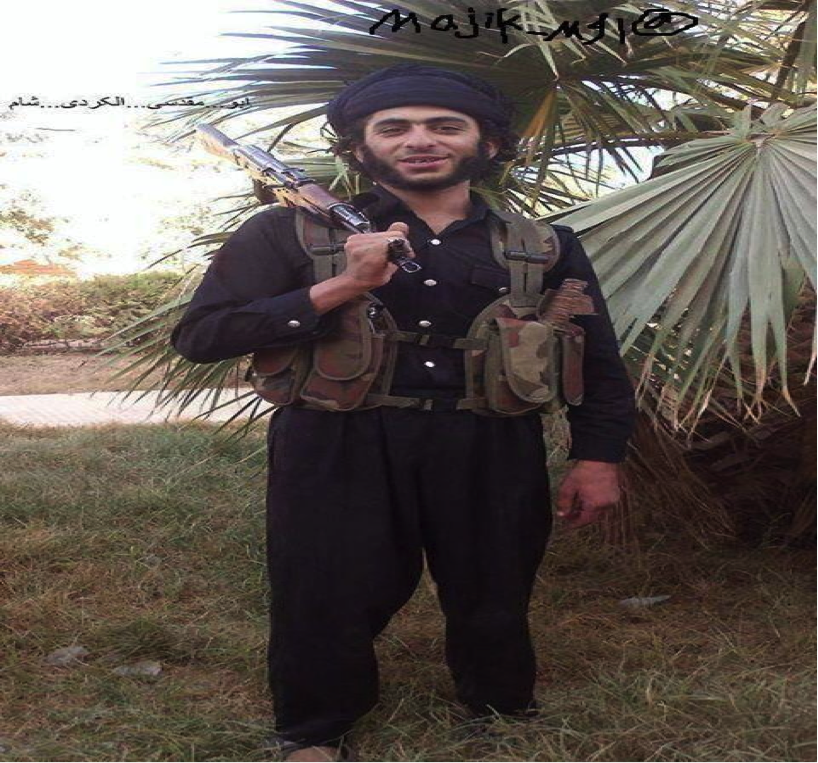
Figure 6: Abu al-Maqdisi al-Kurdi, one of the Kurdish commandoes behind the ISIS assault on Kirkuk.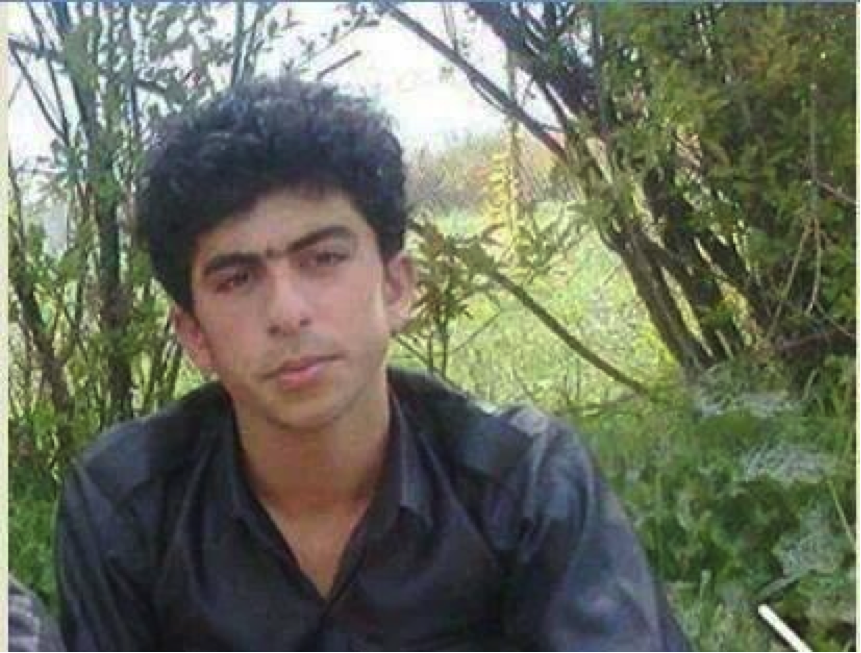
Figure 7: Abu Abdullah al-Kurdi, another of
As-Saḥāb Media presents a new audio message from al-Qā’idah's Dr. Ayman al-Ẓawāhirī: "Urgent Call to Our People in al-Shām"

Audio:
Dr. Ayman al-Ẓawāhirī — “Urgent Call to Our People in al-Shām”
Arabic Transcription:
Dr. Ayman al-Ẓawāhirī — “Urgent Call to Our People in al-Shām”
__________
To inquire about a translation for this audio message for a fee email: [email protected]
al-Furqān Media presents a new video message from the Islamic State of Iraq and al-Shām: "Epic Battles of Greater al-Anbār #1"

__________
To inquire about a translation for this audio message for a fee email: [email protected]
Mirkaz al-Maqrīzī al-Dirāsāt al-Tārīkhīyyah presents a new statement from Dr. Ṭāriq 'Abd al-Ḥalīm and Hānī al-Sibā’ī: "A Call For Reconciliation and Forgiveness Among the Mujāhidīn in al-Shām: [the Islamic] State, Jabhat al-Nuṣrah, Aḥrār al-Shām, and Other Brigades"

Click the following link for a safe PDF copy: Dr. Ṭāriq ‘Abd al-Ḥalīm and Hānī al-Sibā’ī — “A Call For Reconciliation and Forgiveness Among the Mujāhidīn in al-Shām- [The Islamic] State, Jabhat al-Nuṣrah, Aḥrār al-Shām, and Other Brigades”
__________
To inquire about a translation for this statement for a fee email: [email protected]
al-I’tiṣām Media presents a new video message from the Islamic State of Iraq and al-Shām: “A Window Upon the Land of Epic Battles #43"
NOTE: For prior parts in this series see: #42, #41, #40, #39, #38, #37, #36, #35, #34, #33, #32, #31, #30, #29, #28, #27, #26, #25, #24, #23, #22, #21, #20, #19, #18, #17, #16, #15, #14, #13, #12, #11, #10, #9, #7, #6, #5, #4, #3, #2, and #1.
–

__________
To inquire about a translation for this video message for a fee email: [email protected]
al-Furqān Media presents a new audio message from the Islamic State of Iraq and al-Shām’s Abū Bakr al-Ḥussaynī al-Baghdādī: "God Knows and You Do Not Know"
UPDATE 1/25/14 11:44 PM: Here is an English translation of the below Arabic audio message and transcription:

Click the following link for a safe PDF copy: Abū Bakr al-Ḥussaynī al-Baghdādī — “God Knows and You Do Not Know” (En)
________
—
UPDATE 1/20/14 9:24 PM: Here is an Arabic transcription of the below audio message:

Click the following link for a safe PDF copy: Abū Bakr al-Ḥussaynī al-Baghdādī — “God Knows and You Do Not Know” (Ar)
_____________
—

Abū Bakr al-Ḥussaynī al-Baghdādī- “God Knows and You Do Not Know”
___________
al-I’tiṣām Media presents a new video message from the Islamic State of Iraq and al-Shām: “Pictures From the Land of Epic Battles #7"
Minbar al-Tawḥīd wa-l-Jihād presents a new statement from Shaykh Abū Muḥammad al-Maqdisī: "Don't Do It, Otherwise It Will Stir Fitnah in the Land and Great Corruption"

Click the following link for a safe PDF copy: Shaykh Abū Muḥammad al-Maqdisī — “Don’t Do It, Otherwise It Will Stir Fitnah in the Land and Great Corruption”
___________
To inquire about a translation for this statement for a fee email: [email protected]
New statement from Jabhat al-Nuṣrah: "In Response to the Recognition of the [Islamic] State Killing Abū Sa'd al-Ḥaḍramī, Amīr in al-Raqqah"
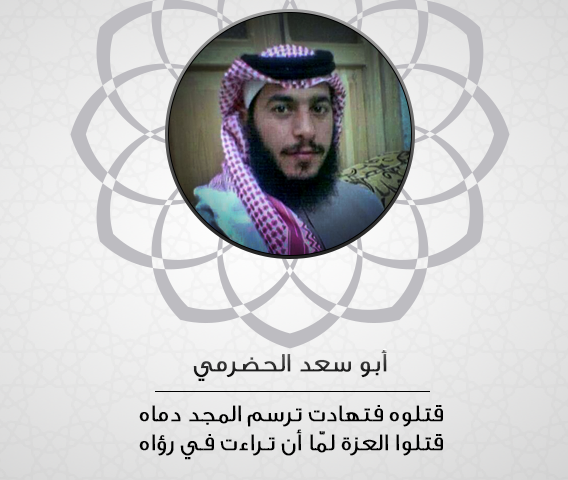
Click the following link for a safe PDF copy: Jabhat al-Nuṣrah — “In Response to the Recognition of the [Islamic] State Killing Abū Sa’d al-Ḥaḍramī, Amīr in al-Raqqah”
_________
To inquire about a translation for this statement for a fee email: [email protected]
